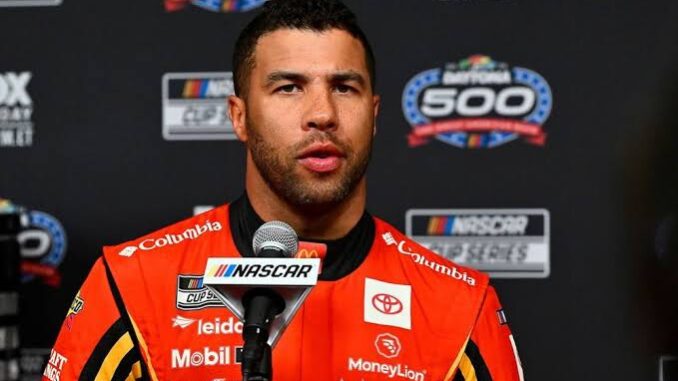
Bubba Wallace’s decision to retire marks the end of a significant chapter in NASCAR history. Wallace, who first garnered widespread attention as the only full-time Black driver in the Cup Series, has been a pivotal figure in the sport, not just for his driving skills but for his role as a catalyst for change.
Wallace’s career, which began in the lower series of NASCAR, gained traction when he joined Richard Petty Motorsports in the Cup Series. His tenure with the team was marked by notable achievements, including a historic win at the 2021 Talladega Superspeedway, a victory that was not only a personal milestone but also a moment of immense cultural significance. It symbolized a breakthrough for diversity in a sport long criticized for its lack of inclusivity.
Throughout his career, Wallace used his platform to advocate for social justice and equality, standing out for his outspoken views on race relations and his support for movements like Black Lives Matter. His decision to race with a Black Lives Matter paint scheme and his support for banning the Confederate flag at NASCAR events drew both praise and controversy but undeniably highlighted his commitment to using his visibility to address systemic issues.
Wallace’s retirement announcement, therefore, comes as a poignant moment for NASCAR fans and the broader sporting community. It signals the end of a period where Wallace not only competed at the highest level but also helped to reshape the narrative around the sport’s approach to diversity and inclusion. His departure leaves a void that goes beyond the racing circuits, touching on broader themes of representation and progress within motorsports.
While his future plans remain somewhat uncertain, with possibilities ranging from ventures outside of racing to new roles within the sport, Wallace’s impact will likely be felt for years to come. His career has been characterized by an unwavering commitment to breaking barriers and challenging norms, setting a precedent for future generations of drivers.
As NASCAR reflects on Wallace’s contributions, his legacy will be remembered for both his on-track performance and his off-track activism. The end of his era is not just about the conclusion of a racing career but about recognizing the strides made in diversifying a traditionally insular sport. Wallace’s retirement serves as a reminder of the power of sports figures to effect change and inspire new conversations about equity and representation.
Leave a Reply